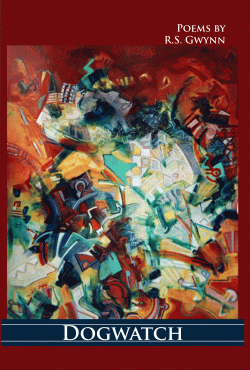Gwynn is a comic genius with a tragic sensibility. Besides writing lyrics of devastating restraint such as the title sonnet, Gwynn is a crack-shot of a parodist: “Fried Beauty” has already acquired a cult classic status as a send up of Hopkins, and his “Mr. Heaney” manages at a stroke to send up both the Nobel Laureate and the Librarian from Hull. While his mastery seems to encompass every received form known to man, and some of his own invention, Gwynn’s greatest gift is for incisive, unflinching political poetry, his wit and intelligence let loose on our private foibles and public dysfunction. So often contemporary political poems are either didactic or smug, or both—a preachiness to the converted, a conspicuous display of correct opinion; Gwynn’s political poems come from a darker place—a cold eye on what is at stake, alternating with outright elegy. “Inaugural Prayer” (“A nation undivided/ Never can be free”) and “Body Politic” strike me as among the most powerful political poems of the new century. In Gwynn we have an ironist worthy of our magnificent failings.
— A.E. Stallings
R.S. Gwynn’s Dogwatch is charged with wry humor and great humanity. It sobers the reader with reminders that “the losers who gave us the winners” may well have “deserved the comeuppance they got.” Whether scanning the horizon for the last of the lurking U-Boats or contemplating the desperate frivolity of the Hallmark television channel, the speakers in Gwynn’s new book embody a classical sternness, uniting wary sadness with thoughtful awareness, advising an anonymous graffiti artist that the only phrase worth knowing is “WE CAME WE SAW WE NOW ARE DUST.”
—Ernest Hilbert
R.S. Gwynn has a neoclassical flair for satire, epigrammatic wit, and refined technique, but without all the silly insistence on good taste and decorum. The poems in Dogwatch sing with a sense of irony that more readily warrants the label “postmodern” than the poems of a hundred latter-day André Breton imitators. With a rare intrepidness in his choice of subject and verse form, Gwynn exposes scores of public absurdities that most people have simply accepted, to the general woe of the human race. But, true to life, the appalling comedy also often yields to moments of real tenderness and poignancy.
— Joshua Mehigan

Order from:
R.S. (Sam) Gwynn did his undergraduate work at Davidson College. He earned an M.A. and an M.F.A. from the University of Arkansas. Since 1976 he has taught at Lamar University, where he is University Professor English and Poet-in-Residence. Over the years he has contributed poetry and criticism to many journals, including The Hudson Review, Poetry, and The Sewanee Review. He is the editor of four anthologies of criticism, the Penguin Pocket Anthology series, and (with April Linder) Contemporary American Poetry. He lives in Beaumont, Texas, with his wife Donna. They have three sons and seven grandchildren.